There are over 42,000 pieces of space debris orbiting the earth. Unable to perform their original function, this debris poses a risk of colliding with other working objects in orbit and setting off other untrackable cascading collisions.
How does one solve this issue? Can anything be done?
In this episode of Venture unscripted., Josh Barker, CEO of City Innovations, sat down with Troy Morris, Co-Founder and Director of Operations, Austin Morris, Co-Founder and Director of Engineering, and Adam Kall, Co-Founder and Director of Technology of Kall Morris Inc (KMI) to talk about how they started their venture to solve for the growing amount orbital space debris, what challenges they have overcome, and words of advice to other entrepreneurs looking to start a venture.
Click here to listen to the podcast or keep scrolling to read the podcast recap blog.
How it All Started
Where did the idea to build a company focused on active debris removal in space first start? Brothers Troy and Austin Morris, along with their good friend Adam Kall, originally bonded over their love for video games, like-minded school disciples, and the joy of outer space. However, the mundanity of life sank in after graduation.
“I was working a great corporate job and wasn’t seeing the most out of life… I wasn’t making my dent on the universe,” explained Troy.
Austin and Adam shared similar frustrations. After reconnecting, they discovered that they all still had a burning interest in outer space and changing the world around us for the better. Leaning on Austin’s experience with rapid prototyping they started brainstorming ideas to make the world a better place.
“My background in R and D often leads to figuring out why a good idea won’t work. If you can overcome all of those obstacles, then you’ve got something. And if not, then at least you figured out right away not to waste too much time and effort on it,” said Austin.
The group settled on solving the issue of the exponentially growing amount of space debris. This debris is often capable of destroying a single satellite or massive rocket bodies that could set off cascading collisions of untrackable, lethal shards of debris.
“We found the data to show that that space debris is growing exponentially… For reference, I think we’re up to 42,000 pieces of debris. So we’re at that curve of the hockey stick, as they say, the exponential curve is starting to kick off,” stated Adam.
With this in mind, they knew they needed to come up with a solution.
The Solution to the Problem
“The solution is not to solve the whole problem. It’s not the three of us have to go into space and clear all thousands of pieces of debris,” explained Adam.
Further research from NASA found that cleaning up just five or six major space debris objects a year could help stabilize the environment — any more than that, and it would actually start repairing the environment.
“We looked at that [data] and said, ‘You know what? We can do that. That is something that we can work towards — a couple of captures a year of the most significant objects — be smart about it, be precise in our work, and we can maybe avoid this crisis,’” said Adam.
“It’s a great thing that there are satellites orbiting the earth, but the issue is if you don’t do anything about it. You get one chance. When those satellites stop working, they’re in the way and you can’t replace them. We can’t keep satellites in space — we need to repair the environment for the next generation, for the next idea, and the next upgrade,” he concluded.
At that, Kall Morris Inc (KMI) was formed.
“Humanity is more cognizant of our behavior in space and things that we launch up. Now, a lot of them have a much better plan for how to de-orbits itself, or it has a docking adapter so that we can grab onto it easier in the future. But everything that was launched for the last 60 years didn’t have that,” explained Austin. “So we took the approach focusing on all those objects that don’t have a system in mind and figuring out how to grab those and how to deorbit them.”
So, what’s their solution? Take a look:
Click here to listen to the podcast to discover how it works, or check out the Kall Morris Inc. website to learn more.
Moving Forward with Confidence
The COVID-19 pandemic allowed the KMI team to have a lot of time at home. This provided them with the opportunity to reach out to experts in NASA, across academia, within aerospace companies, and others to pitch their ideas, create connections, form relationships, and better develop their mission.
KMI was also able to focus their energy on operating the company on a lean model — building relatively smaller spacecraft and prototyping through 3D printers and modeling software.
Fast forward to today and the company has business contracts with the United States Space Force.
“Far too often we’ve met great entrepreneurs, but they keep [their] idea in a box. There’s a fear that [someone will] steal what’s in the box… So a big part of the line of thought that we follow is to test the idea. And that requires a lot of fear, a lot of ego swallowing, and doing it anyways,” said Troy.
“If it had been up to Adam and I solely, it would’ve been an idea in a box. We would’ve solved all the problems in a workshop in the basement,” Austin admitted. “But we realized that this needed to be better than that. And that’s where bringing in choice skillset came into play. We’ve all realized over the last couple years that none of us could do this independently… So continuing to expand the team, but relying on everybody to bring their best skills to it is key to the whole thing.”
“I think another aspect is confidence to do something that feels outrageous. When we look at space debris removal, I’m convinced there is a way to do this… There’s no law of physics that says you can’t grab something in space. So let’s figure it out,” added Adam.
What would you say if someone wanted to start a space company?
“You have to find what drives you because being paid for it isn’t enough,” said Troy. “There are thousands of jobs out there… but you have to find something that drives you.”
Adam also gave his advice. “I had these three young people come up to me and say, ‘We want to do a space company too.’ I looked at the three of them and I thought about the three of us. What I told them is similar to Troy. Find the thing that you’re passionate about. Find the thing that you want to solve or you want to do. If you can’t think of something, listen to what the leaders in the industry are talking about,” Adam explained.
Assumptions and Advice
“[The] easiest, biggest assumption at the start was that we could start a space company. That still feels like a giant assumption… Every day that I wake up and I’m still director of technology for KMI and there’s still meetings to attend and problems to figure out, I’m just like, ‘Yeah, this is still happening,’” said Adam.
“Also assuming that there is a solution. Assuming that we can, with existing technologies and minimal new technologies, figure out a way to actually accomplish this task. There is a solution to this. We just need to find it,” Austin chimed in.
“Fortunately, so far it seems like that was an accurate assumption. There has definitely been a good smattering of less accurate ones… [But] finding those out and failing fast on those allowed us to then pivot, and continue in the right direction,” he said.
Continue Listening
Want to learn more about how KMI got started, how they overcame challenges, and what’s next for the future of space debris? Click here to listen to the full podcast or watch the rest below.




